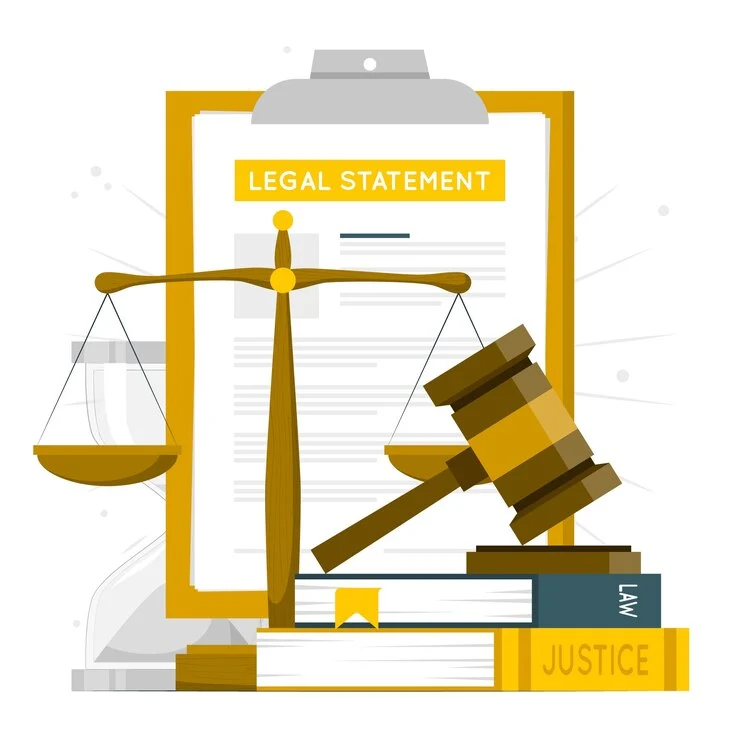Key Takeaways:
- Before registering a domain name, perform a comprehensive search to ensure it does not infringe on existing trademarks.
- Opt for a domain name that is original and unlikely to be confused with established brands. Avoid using common words or phrases associated with other companies.
- Secure your brand by registering your domain name as a trademark. This provides legal protection and strengthens your position in case of disputes.
- Regularly monitor the internet for potential infringements on your domain name and trademarks. Set up alerts and use monitoring services to stay informed about any unauthorised use.
In the current era of technology, domain names have a significant impact on creating an online presence and establishing a domain name copyright infringement brand identity.
However, with the increasing value and recognition associated with domain names, the risk of copyright infringement has become a significant concern.
Domain name trademark infringement occurs when a registered trademark is used without authorisation in a website name, which may result in legal consequences.
This article aims to provide an introductory overview of domain name copyright infringement, exploring its implications, legal framework, and best practices for avoiding infringement.
It’s important for individuals involved in business, website operation, or intellectual property law to have an understanding of domain name trademark infringement to ensure ethical practices and protect their rights in the digital world.
Please note that while this article provides general information, it is not a substitute for legal advice.
For guidance on domain name trademark infringement, it is recommended to seek advice from a qualified intellectual property attorney.
Protect Your Brand & Recover Revenue With Bytescare's Brand Protection software
What is a Domain name?
A domain name is a unique and human-readable address that serves as an identifier for websites on the internet.
It is part of a larger system called the Domain Name System (DNS) that translates domain names into the corresponding IP addresses of the servers hosting the websites.
It typically consists of two main parts:
- the top-level domain (TLD), such as .com, .org, or .net, and
- the second-level domain (SLD), which is the chosen name that precedes the TLD.
For example, in the domain name “example.com,” “example” is the SLD, and “.com” is the TLD.
It is important for branding, online presence, and facilitating easy access to websites.
Functions of Domain Name
A domain name plays a crucial role in the online world, serving multiple functions that are similar to those of a trademark.
It acts as a unique identifier and navigator for businesses, allowing them to establish their presence on the internet.
Just as a trademark visually represents a company’s products or services, a domain name serves as a virtual representation of the business itself.
One of the primary functions of the website name is to protect against unauthorised use by entities or individuals.
By registering a domain name, businesses can ensure that their online presence is safeguarded from misuse or exploitation.
It offers a layer of security by preventing others from using the same domain name and potentially misleading or infringing on the business’s reputation.
Moreover, the website name enhances the reach and accessibility of a business.
It serves as a contact point that enables customers from anywhere in the world to access the company’s website, products, or services.
This global accessibility contributes to expanding the business’s market reach and potential customer base.
Similar to a trademark, a well-established and protected domain name increases brand recognition and visibility.
It helps to establish a strong online presence and enables businesses to differentiate themselves from their competitors in the digital landscape.
While the process of acquiring a domain name differs from trademark registration, it is possible to obtain trademark protection for a domain name.
This additional step ensures that the domain name is legally protected against unauthorised use or infringement, providing further security for the business.
Protect Your Brand & Recover Revenue With Bytescare's Brand Protection software
Trademark Infringement in Domain Name

Domain name trademark infringement occurs when a registered trademark is used without authorisation in a domain name.
It occurs when someone uses a website name that incorporates a trademark without the permission of the trademark owner.
This type of infringement can cause confusion among consumers and may lead to reputational harm or financial losses for the trademark owner.
Trademark infringement in domain names typically involves using a registered trademark, or a similar mark that may create confusion, as part of the website name to:
- attract visitors,
- gain credibility, or
- divert traffic
- intended for the trademark owner’s website.
It can also include using a domain name that creates a false association with a well-known brand or dilutes the distinctive nature of a trademark.
Trademark owners have the exclusive right to use their registered marks in connection with the goods or services they offer.
When someone uses a domain name that infringes on a trademark, it can infringe on the owner’s rights and potentially harm their business.
Protecting Domain Names in India: Safeguarding Online Identity
In India, the protection of domain names as trademarks or service marks falls under the purview of the Trademarks Act, 1999.
By meeting the registration requirements outlined in the Act, domain names can be granted legal protection.
Once registered, domain owners enjoy the same rights and privileges as owners of registered trademarks, including the ability to take legal action against infringement and passing off.
Trademark violation occurs when a person violates a registered website name that is considered a valid trademark under Indian law, making them legally responsible under Section 29 of the Act.
Furthermore, even if a trademark is not registered, owners can still seek protection against passing off if they can demonstrate prior use, distinctiveness, and the misrepresentation of their goods likely to deceive the public.
As the online landscape continues to evolve, it is crucial for domain name owners in India to proactively understand and navigate the legal provisions governing their online identity.
By pursuing proper registration and protection, they can effectively safeguard their domain names and preserve their online brand reputation.
Protect Your Brand & Recover Revenue With Bytescare's Brand Protection software
Domain Name Copyright Infringement: Cases
People Interactive (India) Pvt. Ltd. v Vivek Pahwa & Ors.
In this case, the Bombay High Court addressed a passing-off conflict involving shaadi.com and secondshaadi.com.
The court ruled in favor of the defendants, stating that the term “shaadi” is widely used and holds a descriptive meaning.
To establish a secondary meaning, it must be demonstrated that the word has surpassed its original meaning and is exclusively associated with a particular trademark holder in the public’s perception.
The court concluded that in this instance, the primary meaning of “shaadi” was solely related to its usage as an internet destination, and the required secondary meaning had not been established.
Bigtree Entertainment v Brain Seed Sportainment

In 2018, the Delhi High Court dealt with a dispute between Bigtree Entertainment and Brain Seed Sportainment.
The court denied the request for an interim injunction by the owners of bookmyshow.com against the use of the domain bookmysports.com by the defendant.
The court found that the prefix “BOOKMY” in the plaintiff’s trademark was descriptive and not unique.
Furthermore, the plaintiff failed to demonstrate that “BOOKMY” had acquired distinctiveness or secondary meaning.
Consequently, the court dismissed the plaintiff’s application for an interim injunction.
Rajat Agarwal vs. Spartan Online
In a 2017 ruling, the Calcutta High Court referenced the Satyam case to establish that a domain name is selected as
“an instrument of commercial enterprise not only because it facilitates the ability of consumers to navigate the Internet to find websites they are looking for, but also at the same time, serves to identify and distinguish the business itself, or its goods or services, and to specify its corresponding Internet location.”
The court stressed the need for a unique and exclusive domain name to maintain a distinct identity.
However, in this case, the court did not prevent the defendants from using the domain name spartanpoker.com.
This decision was based on the fact that the plaintiffs had only registered the domain name without investing in webpage development, trade dress, mark design, and related expenses.
Acqua Minerals Ltd. v. Mr. Pramod Borse & Anr
In this case, the court found that the defendant had registered and utilised a domain name (bisleri.com) that closely resembled the plaintiff’s website name.
The court deemed this act as cyber-squatting, which constitutes infringement. As a result, the plaintiff sought the transfer of the website to their name as a remedy.
How to Prevent Trademark Violation in Domain Name?
To avoid domain name trademark infringement, it is important to take proactive measures and conduct thorough research before selecting and using the website name.
Here are some steps that can help in avoiding such infringement:
Research Trademarks: Before registering or using a domain name, search for registered trademarks that may be similar to the desired name.
Check trademark databases, such as the USPTO’s Trademark Electronic Search System (TESS), to ensure there are no conflicting trademarks.
Conduct Domain Name Search: Use domain name search tools or domain registrars to check if the desired name is already registered or in use. This can help identify any potential conflicts with existing trademarks.
Avoid Similarities: Choose a domain name that is distinct and does not closely resemble existing trademarks. Avoid using misspellings, variations, or combinations of existing trademarks that may lead to confusion among consumers.
Obtain Trademark Clearance: If the domain name will be closely associated with a brand or business, consider seeking legal advice and obtaining a comprehensive trademark search and clearance opinion.
This can help identify potential risks and ensure the chosen name does not infringe on existing trademarks.
Respect Existing Rights: If you come across a registered trademark that is similar to your desired domain name, it is best to avoid using it to prevent infringement.
Respect the intellectual property rights of others, and choose a different, non-conflicting name for your domain.
Monitor Trademark Filings: Keep an eye on trademark filings and registrations to stay updated on any new trademarks that may conflict with your domain name. This can help you address potential infringement issues in a timely manner.
Consult Legal Professionals: When in doubt or dealing with complex trademark issues, consult with intellectual property lawyers or trademark experts. They can provide guidance and assist in navigating the legal aspects of domain name trademark infringement.
Protecting Your Domain Name: Steps to Prevent Trademark Infringement

To protect your domain name from trademark infringement by others, you can follow these simple steps:
- Track and Detect: Regularly monitor and track any potential infringements or unauthorised use of your domain name. Keep an eye on similar names, trademarks, or brands that could cause confusion among consumers.
- Claim and Recover: If you discover that someone is infringing on your domain name, take action to claim and recover it. Contact the individual or organisation involved and assert your rights as the rightful owner of the domain name. You may need to provide evidence of your ownership and demonstrate that their use infringes on your trademark rights.
- Control and Restrain: Take measures to maintain control over your domain name and prevent further infringement. This can include securing proper trademark registrations, implementing strong security measures to protect your domain, and utilising legal mechanisms such as cease and desist letters or legal actions to restrain unauthorised use.
Alternative Way to Safeguard Your Brand’s Domain
Preventing domain name trademark infringement can indeed be a complex task, especially when business owners have numerous responsibilities to handle.
Juggling these steps alongside regular business activities can be overwhelming.
However, there is a solution that can automate the detection and monitoring process while enabling you to take necessary actions against domain owners and secure your domain portfolio from external threats.
Bytescare offers brand & reputation management services specifically designed to assist business owners in protecting their portfolios and, most importantly, their brands.
By leveraging our expertise and tools, you can efficiently identify domains that exploit your brand, initiate appropriate actions against domain owners, and fortify your domain portfolio against potential infringements.
Our dedicated team of professionals is ready to guide you through the process and provide you with the necessary support.
To learn more or to experience a demonstration of our services, reach out to our experts or book a demo today.
With Bytescare’s comprehensive solutions, you can ensure that your brand remains protected and your online presence continues to thrive.
Conclusion
A domain name performs functions that are parallel to those of a trademark.
It acts as a business identifier, protector, and enhancer of a business’s online presence.
By registering and protecting a domain name, businesses can solidify their brand identity, expand their reach, and safeguard their online reputation.
The Most Widely Used Brand Protection Software
Find, track, and remove counterfeit listings and sellers with Bytescare Brand Protection software

FAQs
Is it possible to register and protect internet domain names as trademarks or service marks?
Yes, internet domain names can be registered and protected as trademarks or service marks.
Their registration and protection as trademarks or service marks are governed by the applicable laws and regulations in each country.
What distinguishes a domain name from a trademark?
A domain name is a unique address that identifies a website on the internet, while a trademark is a distinctive symbol, word, phrase, or combination of colours used to identify and distinguish goods or services in the marketplace.
While both serve as identifiers, a domain name primarily functions as an online address, while a trademark represents the brand’s exclusive identity of a product or service.
What if another person’s domain name violates your trademark?
There are legal remedies available to you if another person’s domain name infringes on your own trademark.
You can consider sending a cease and desist letter, filing a complaint with the domain name registrar, or pursuing legal action to protect your legitimate rights.
How is a domain name different from a copyright?
A domain name is a unique address that identifies a website on the internet, while copyright refers to the legal protection granted to original creative works such as literary, artistic, or musical creations.
A website name is not inherently protected by copyright, but the content hosted on a website, such as text, images, or music, may be protected by copyright.
Can I secure a copyright for my domain name?
Copyright law does not extend protection to the domain.
The registration and management of website names at an international level are overseen by the Internet Corporation for Assigned Names and Numbers (ICANN).
Who owns the rights to a domain name?
The rights to a domain name are typically owned by the individual or organisation that registers it with a domain name registrar.
However, it’s important to note that registering a website name does not automatically grant trademark rights.
Trademark rights are obtained through proper registration and use of a distinctive mark in commercial activities.
Does trademark law safeguard domain names?
Trademark law can provide legal protection for website names that incorporate your trademark.
While it is possible for others to register identical domain names, they are restricted from selling similar products or offering related content on their websites.
While you cannot prevent others from registering the same website name, you can take measures to protect your brand from infringement.
Ready to Secure Your Online Presence?
You are at the right place, contact us to know more.

